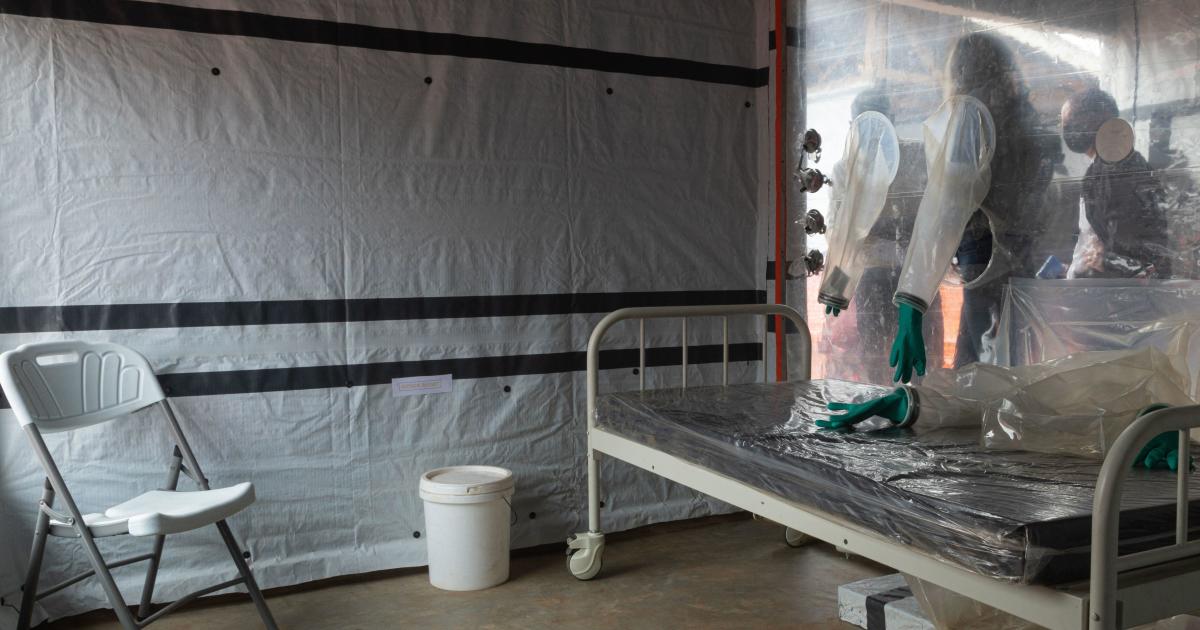Tragic Resurgence: Ebola Claims Its First Victim in Kampala Since 2023 Outbreak
In a shocking turn of events, health officials in Kampala have reported the first fatality from Ebola since the last outbreak concluded earlier this year. This tragic resurgence has sent ripples of concern throughout the medical community and the general populace, prompting immediate investigations and enhanced safety measures. Understanding the implications of this incident is crucial for the residents of Kampala and beyond, as it underscores the ongoing challenges posed by infectious diseases.
The Current Situation: A Nurse’s Untimely Death
The victim, a nurse who had been working at a local healthcare facility, tragically succumbed to the virus after displaying symptoms consistent with Ebola. The Ministry of Health in Uganda confirmed the case, noting that the nurse had been in contact with patients exhibiting signs of the virus. This incident raises significant alarm, as it marks the first death from Ebola in the region since the previous outbreak was declared over.
Health officials have initiated a robust response strategy, including:
- Contact Tracing: Identifying and monitoring individuals who may have come into contact with the deceased nurse.
- Increased Surveillance: Health teams are on high alert to detect any further cases that may arise in the community.
- Public Awareness Campaigns: Informing residents about the symptoms of Ebola and preventive measures to take.
Understanding Ebola: A Brief Overview
Ebola is a severe viral illness that is often fatal. The virus is transmitted to people from wild animals and spreads through human-to-human contact. Symptoms typically include high fever, intense weakness, and gastrointestinal symptoms. The mortality rate for Ebola can be as high as 90% in some outbreaks, making it one of the deadliest viruses known.
This recent case highlights the importance of continuous vigilance against the virus, especially in regions where outbreaks have occurred in the past. The intermittent nature of Ebola outbreaks necessitates that healthcare systems remain prepared and responsive.
Historical Context: The 2023 Outbreak
The 2023 outbreak of Ebola in Uganda was particularly alarming, leading to numerous infections and several deaths. Health authorities managed to contain the outbreak through rigorous health measures, including:
- Quarantine Procedures: Infected individuals and those who came into contact with them were swiftly quarantined.
- Vaccination Drives: Vaccines were administered to at-risk populations to prevent further transmission.
- International Support: Organizations such as the World Health Organization (WHO) provided vital resources and expertise.
Given the success of these measures, the news of the recent death comes as a shock, indicating that the threat of Ebola persists even when it seems to be under control.
The Community’s Response: Fear and Resilience
The immediate reaction from the community has been one of fear and concern. Many residents are anxious about the potential for the virus to spread again, recalling the trauma of previous outbreaks. However, amidst the fear, there is a sense of resilience. Community leaders are stepping up to ensure that residents are informed and prepared.
Efforts are being made to:
- Educate the Public: Community workshops and informational materials are being distributed to explain how Ebola spreads and the steps individuals can take to protect themselves.
- Support Healthcare Workers: Recognizing the risks faced by healthcare professionals, additional support and protective equipment are being provided to ensure their safety.
Preventive Measures: What You Can Do
As the situation develops, it’s essential for individuals to understand how to protect themselves and others from Ebola. Here are some key preventive measures:
- Practice Good Hygiene: Washing hands frequently with soap and water or using hand sanitizer can significantly reduce the risk of infection.
- Avoid Contact: Stay away from individuals who are showing symptoms of Ebola or have recently been in affected areas.
- Stay Informed: Follow updates from health authorities and be aware of any advisories regarding Ebola.
The Role of Healthcare Systems
This tragic resurgence emphasizes the crucial role of healthcare systems in managing infectious diseases. Investment in healthcare infrastructure, staff training, and patient care protocols is vital for effective outbreak response. Uganda’s healthcare system has demonstrated resilience in past outbreaks, but ongoing challenges remain, including resource allocation, training for healthcare workers, and public health education.
International collaboration also plays a significant role in managing outbreaks. Organizations such as the WHO and Médecins Sans Frontières (Doctors Without Borders) provide essential support during crises, helping to contain outbreaks and educate local populations.
Looking Ahead: Hope Amidst Challenge
While the death of the nurse in Kampala is undoubtedly tragic, it also serves as a reminder of the importance of awareness and preparedness in the face of infectious diseases. The swift action taken by health officials and the community’s proactive response can help mitigate the risk of further spread.
As the investigation unfolds, it is crucial for residents to remain vigilant and supportive of one another. In the coming weeks, health authorities will be monitoring the situation closely, and the hope is that with concerted efforts, this resurgence will be contained swiftly.
Conclusion: The Fight Against Ebola Continues
The tragic resurgence of Ebola in Kampala is a stark reminder that vigilance is key in the ongoing battle against infectious diseases. With prompt action, community engagement, and strong healthcare systems, it is possible to confront this challenge. The resilience of the Ugandan community, paired with international support, offers a beacon of hope in these trying times.
As we reflect on this unfortunate event, let us remember that our collective efforts can turn the tide against Ebola and ensure a safer future for all.
See more WebMD Network



